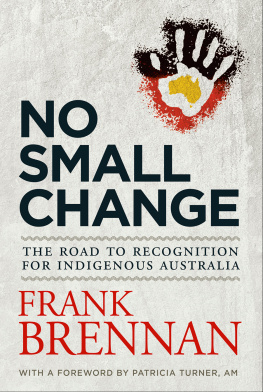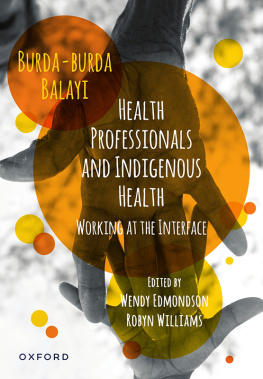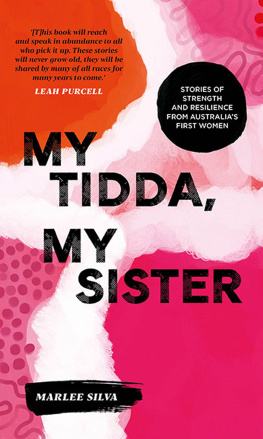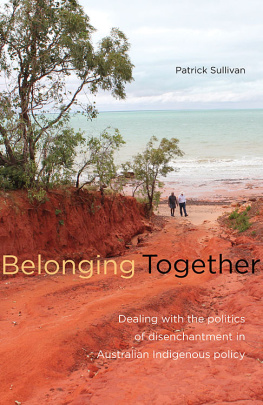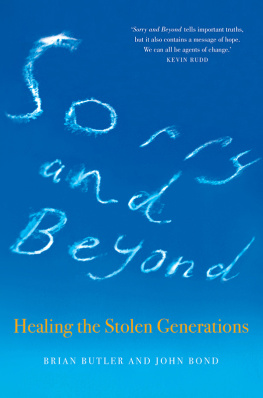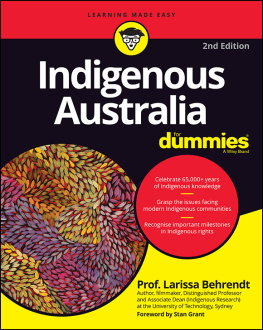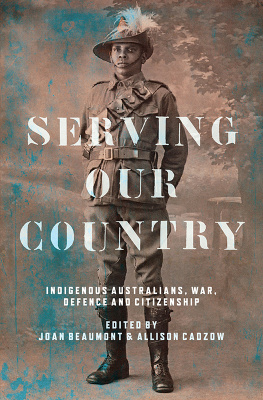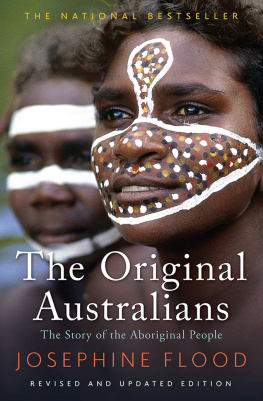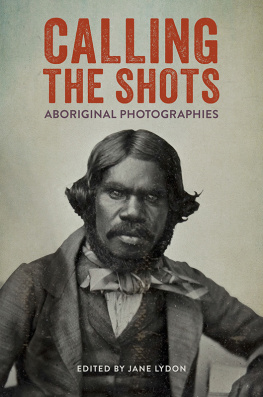Dr Noah Riseman is an Associate Professor in History at Australian Catholic University. He specialises in the history of marginalised social groups in the Australian Defence Force. His first book, Defending Whose Country? Indigenous Soldiers in the Pacific War (2012), was shortlisted for the 2013 Chief Ministers Northern Territory History Award.
Dr Richard Trembath has taught many university courses in a number of disciplines ranging from philosophy to military history. He is the co-author of several books, including Witnesses to War , a landmark chronicle of Australias war correspondents. Much of his work involves interviews and oral history. He is currently researching potential subjects for a biography.
To all those teachers, past and present,
who have inspired my love of history
NR
For Anne Marie, as always
RT
CONTENTS
Skilling Indigenous women: Aboriginal and
Torres Strait Islander people in the womens services |
Racism, Indigenous people, and the Australian
armed forces |
Preface
In January 2014 one of the showcase performances at the Sydney Festival was the Queensland Theatre Companys production of the new play Black Diggers . Written by Tom Wright, directed by Wesley Enoch and co-produced by the Queensland Theatre Company, the 105-minute play depicted the First World War experience of Aboriginal soldiers, drawing on key themes including long histories of colonialism, reasons to enlist, egalitarianism on the front, discrimination upon return, denial of veterans benefits and the forgotten contributions of Aboriginal servicemen. The play successfully portrayed the diversity of experiences through clever use of the cast of nine actors across 60 scenes.
Black Diggers received rave reviews at the Sydney Festival and has contributed to a gradual awakening among non-Indigenous Australians about the role of Aboriginal and Torres Strait Islander people in defending Australia. After the plays successful run in Sydney and Brisbane, the Queensland Theatre Company received a grant from the Commonwealth arts minister to tour to Perth, Canberra, Melbourne and Adelaide in 2015. Black Diggers was not the first play to commemorate Indigenous service, though it was the first to focus on the First World War. Earlier productions addressing Indigenous Second World War service included In Our Town (1992) and The Sunshine Club (1999), and Aboriginal Vietnam War service was the subject of Seems Like Yesterday (2000). What sets Black Diggers apart, though, is the national tour, high-profile venues such as the Sydney Opera House, and the national press.
The positive audience and public reception of Black Diggers has highlighted not only the need for more histories of Aboriginal and Torres Strait Islander military service, but also the great interest among all Australians in this important topic. As Australia commemorates the centenary of the First World War, many commentators are also looking back over the last century of Australian military service, and this book tells one piece of that story. Whereas Black Diggers portrays the First World War experience of Aboriginal servicemen and their families, this book looks at Aboriginal and Torres Strait Islander military service since the end of the Second World War.
This project began in December 2009 when Noah conducted his first interview in Canberra with Neil Macdonald, Gulf War veteran. Very quickly it became clear that this was going to be intensive, thought-provoking and exciting research. As we conducted more interviews, we were amazed at the diversity of experiences that came across in the stories. Every ex-serviceman and woman whether they had experienced the trauma of Vietnam, been forcibly removed from their parents as children, used the Australian Defence Force to escape domestic service or felt pride in helping rebuild East Timor had their own story to tell. Working in the archives was also interesting, as we uncovered stories of Aboriginal men prosecuted for not registering for national service, and RSL minutes indicating support for Indigenous veterans and the White Australia Policy at the same time.
Throughout this book, one guiding principle is Aboriginal historian Gordon Briscoes statement: Historians are builders of narratives in that their work is always a work in progress. This book does not pretend to represent the complete history of Aboriginal and Torres Strait Islander postSecond World War military service. Rather, aligning with Briscoes and Goodalls sentiments, it contributes to commemorating the history of Aboriginal and Torres Strait Islander military service. The authors hope this book will facilitate further conversations about Indigenous contributions to their countrys defence, past and present.
Aboriginal and Torres Strait Islander readers are warned that this book contains images and names of persons who are deceased.
Introduction
Lance Corporal David Cook is an Aboriginal man of mixed descent born in Ebor in the New England region of New South Wales on 16 May 1945. This is the borderland of the Djungutti and Gumbaynggirr peoples, but David Cook does not self-identify with any specific Aboriginal mob. Around the time of Davids tenth birthday, he and his four siblings were forcibly removed from their parents. David was placed in the notorious Kinchela Boys Home for three years before being fostered out with three of his sisters. At the age of 17 David enlisted in the army; he served two tours of duty in Vietnam before being discharged in 1968. In Vietnam, like so many other soldiers, David witnessed the horrors of war and lost close friends. Though he was a successful soldier liked by his peers, Davids life spiralled out of control in the 1970s. He returned to an Australia disillusioned by the unpopular war and suffered post-traumatic stress disorder as a consequence of both his troubled upbringing and his experiences in Vietnam. Cycles of violence, imprisonment and encounters with racism threatened to turn David into another Aboriginal statistic, until he got his life back on track through reconnecting with his siblings.
David Cook is one of thousands of Aboriginal and Torres Strait Islander men and women who have served in the Australian armed forces. Despite Australias history of persecution and injustice perpetrated against Indigenous Australians, they have regularly come forward to defend their country in times of war and peace. Every Australian Indigenous serviceman or woman has a distinct story of their childhood, reasons for enlisting, time spent in military service and the opportunities and obstacles encountered post-service. These individual life stories include themes of hardship, determination, discipline and hope. Taken collectively, the histories of Aboriginal and Torres Strait Islander servicemen and women indicate that for them the military historically represented an employment opportunity and a social paradigm quite different to civilian Australia. Military discipline, sentiments of mateship and the chance to acquire new skills opened previously locked doors for them, both within the armed forces and in their post-service civilian lives. This is not to say that the military experience was always smooth or free of racism; rather, military participation represented one particular route to Indigenous empowerment. Military service had ripple effects beyond just the individuals who served; it impacted on servicemen and womens families, their communities and the non-Indigenous men and women who served alongside them.


